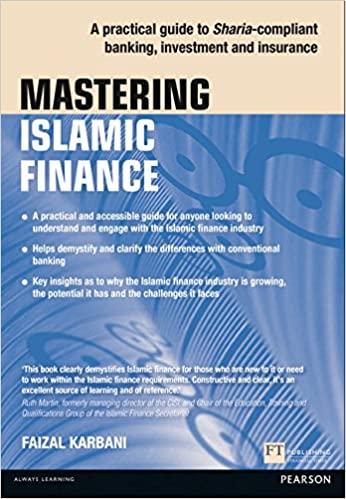Question
On January 1, 20X1, Pepper purchased 60% interest in Salt for $600K. At the time of the purchase, Salts assets and liabilities were equal to
On January 1, 20X1, Pepper purchased 60% interest in Salt for $600K. At the time of the purchase, Salts assets and liabilities were equal to book value except for Inventory, Building and Land (which had fair values in excess of book value of $50K, $100K and $140K respectively). Net Asset BV at the time of purchase was $550K. Included in the $600K purchase price was a covenant not to compete. The covenant was value at $20K and is for a two year period. At the time of the purchase, it was determined that the all of Salts depreciable assets had a remaining 5 year life.
The following events occurred during the year:
- Event #1 Pepper sold inventory with an originally cost of $350K to Salt for $400K. Salt sold 80% to a third party for $450K and had 10% of the inventory remaining at the end of the year
- Event #2 On January 1, 20X1 Salt borrowed $500K from Pepper at 7% interest. Salt paid zero down on the principle during the year. However, Salt paid $15K of the interest and had a payable to Pepper at year end for the remaining difference. Pepper had a corresponding receivable on its books at the end of the year
- Event #3 On January1, 20X1, Salt sold equipment (that was originally purchased for $240K and had an associated depreciation of $70K). Salt sold the equipment to Pepper for $210K. At the time of sale, it was determined that the equipment had a five year life remaining
- Event #4 Salt paid Pepper $115K for accounting and tax services during the year. Pepper incurred $80K in costs providing those services to Salt.
Calculate the total differential
How much of the differential will be allocated to Goodwill
Based on the differential allocation, what would have been the excess expense amount for the entire year 20X1?
Based on event #1 above, what would be the ending inventory balance on the December 31, 2X01 Peppers Consolidated Financials for the inventory that has not been sold to an outside party?
Based on the Event #1, how much of the total gross margin will be recognized by Salt in their 20X1 Income Statement?
Relating to Event #1, what will be the elimination entry in the following year (20X2) to recognized the Realized Gain when the remaining inventory is sold?
Prepare the elimination entry for Event #2 at December 31, 20X1
Prepare the elimination entry for Event #3 at December 31, 20X1
Prepare the elimination entry for Event #3 at December 31, 20X2 (assuming the equipment is still owned by Pepper)
Prepare the elimination entry for Event #4 at December 31, 20X1
Step by Step Solution
There are 3 Steps involved in it
Step: 1

Get Instant Access to Expert-Tailored Solutions
See step-by-step solutions with expert insights and AI powered tools for academic success
Step: 2

Step: 3

Ace Your Homework with AI
Get the answers you need in no time with our AI-driven, step-by-step assistance
Get Started


